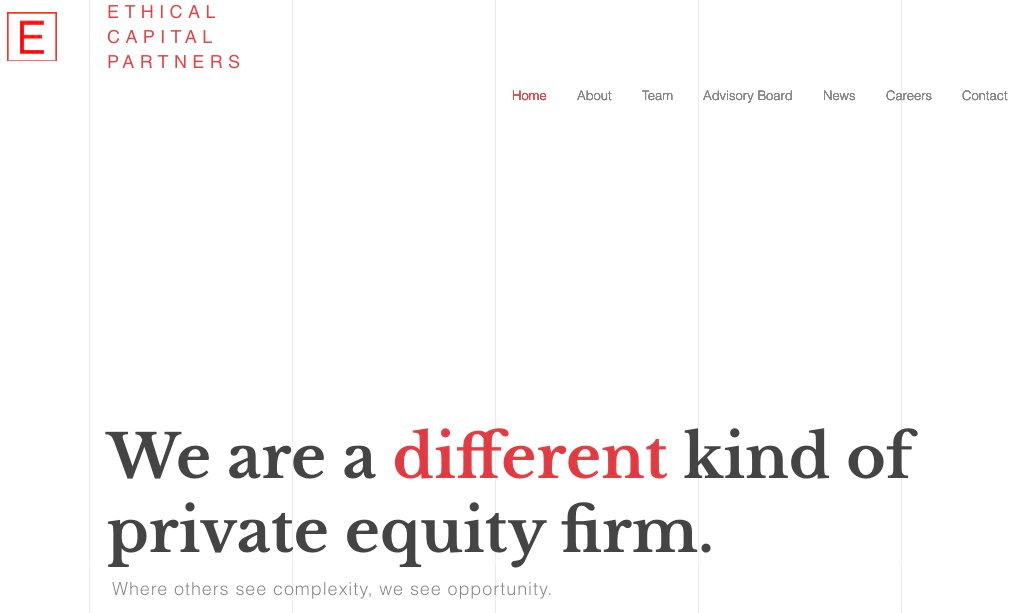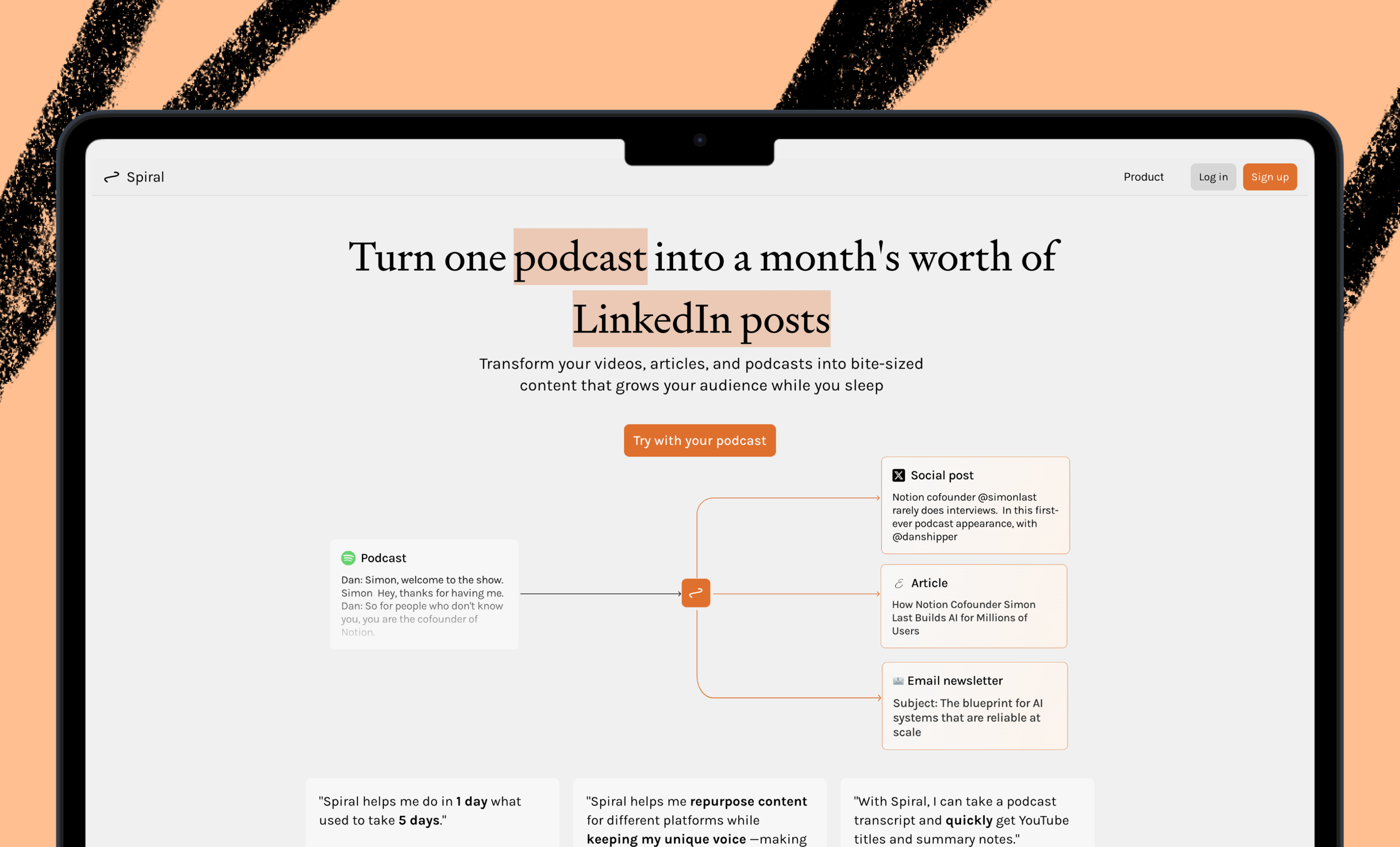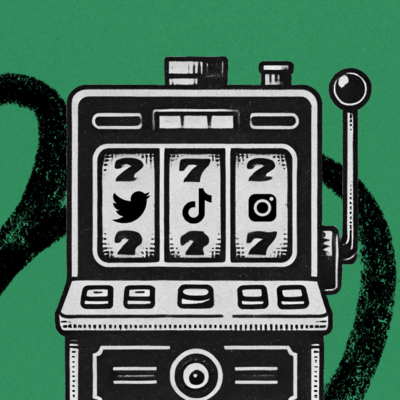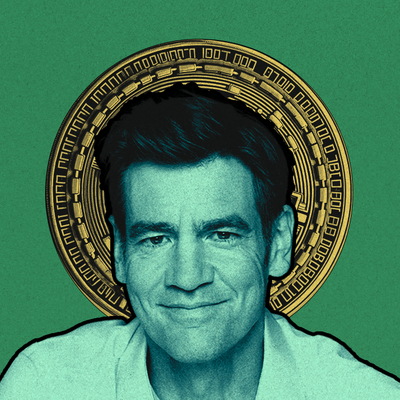
It’s always weird to go viral, but it’s especially bizarre to do so for a thread about Pornhub.
On March 20th, I tweeted out: “I’m like 99% sure Pornhub’s acquisition is a scam.” My thread went supernova hot with over a million views. Instantly I was inundated with potential sources who claimed to have the inside scoop about the deal and DMs calling me an idiot. I've had a lot of conversations with all of the above in the weeks since.
Although I don't have a definitive explanation of this weird deal, I decided to share my theories and the context I've learned here. I’ll also explain why the purchase of Pornhub’s parent company should be attracting more media attention and analysis:
- This transaction raises a ton of questions and is deeply, deeply weird
- There are three possible financing scenarios for this buyout, all of which are troubling
- Given Pornhub’s reach, regulators should be paying closer attention
It is tempting to ignore this transaction because the business is some pervy corner of the internet. But I would argue that Pornhub (and by proxy its parent company MindGeek) is one of the most important websites in the world. Pornhub had over 2B visits last year and 100M+ daily active users. Visitor’s average time on site is 9 minutes and 54 seconds. Meaning that in 2022, a grand total of ~38,026.51 years of time was spent at this URL.
Anything that aggregates this much attention matters. It will spawn content ecosystems devoted to monetizing the audience in whatever way is most profitable. An AI recommendation algorithm will tailor the experience for each user, trapping them in webs of personalized content. Money, power, influence, all of it flows downhill from this amount of eyeballs. And when there is this much influence, served across hundreds of millions of users, we often see bad actors and harmful repercussions. .
Because of the adult nature of Pornhub, the consequences from this aggregation are extreme. Pornhub monetized videos of women being raped. The site was a hotbed of human trafficking. It hosted child pornography. It’s true that any website that allows users to share content—Facebook, Reddit, Twitter, Dropbox, literally anything with a button that says “upload”—have to deal with users sharing this type of content. But MindGeek seems to be particularly susceptible to these issues.
Whoever owns this website will not only have a direct influence over the state of sex trafficking globally but will also hold the emails, credit card numbers, and most private browsing habits of tens of millions of people. So, this deal matters beyond mere intellectual curiosity.
Before we get into it, a disclaimer: I am not an investigative journalist. I am a finance and technology analyst who publishes semi-independently on the internet. This type of story is not my typical forte. But I hope that by sharing the context and connecting some of the dots, I might entice a real journalist to dig up the answers.
Anywho, back to our programming. This transaction is bizarre.
Ethical is more of a hobby
On March 16th, Pornhub announced it had been bought by—get this—“Ethical Capital Partners.” It’s like the Medellin Cartel getting bought by “Totally Not Crime LLC.”
When I first saw this I thought it was an early April Fool’s joke.
When you take a look at the employees of ECP, the transaction gets even weirder. According to their LinkedIn profiles, only one employee has ever worked in finance before. None of them have worked in technology. None of them have publicly worked at ECP itself for longer than six months. The fund's leader Rocco Meliambro supposedly made his money in the cannabis industry.
The firm's advisors are also unconventional. Some are sex work academics, some are more typical board members. One advisor brags about how she can crush watermelons with her thighs. (An impressive talent but one that has a tenuous link to ensuring child safety on the world’s second largest porn website.)
It’s always weird to go viral, but it’s especially bizarre to do so for a thread about Pornhub.
On March 20th, I tweeted out: “I’m like 99% sure Pornhub’s acquisition is a scam.” My thread went supernova hot with over a million views. Instantly I was inundated with potential sources who claimed to have the inside scoop about the deal and DMs calling me an idiot. I've had a lot of conversations with all of the above in the weeks since.
Although I don't have a definitive explanation of this weird deal, I decided to share my theories and the context I've learned here. I’ll also explain why the purchase of Pornhub’s parent company should be attracting more media attention and analysis:
- This transaction raises a ton of questions and is deeply, deeply weird
- There are three possible financing scenarios for this buyout, all of which are troubling
- Given Pornhub’s reach, regulators should be paying closer attention
It is tempting to ignore this transaction because the business is some pervy corner of the internet. But I would argue that Pornhub (and by proxy its parent company MindGeek) is one of the most important websites in the world. Pornhub had over 2B visits last year and 100M+ daily active users. Visitor’s average time on site is 9 minutes and 54 seconds. Meaning that in 2022, a grand total of ~38,026.51 years of time was spent at this URL.
Anything that aggregates this much attention matters. It will spawn content ecosystems devoted to monetizing the audience in whatever way is most profitable. An AI recommendation algorithm will tailor the experience for each user, trapping them in webs of personalized content. Money, power, influence, all of it flows downhill from this amount of eyeballs. And when there is this much influence, served across hundreds of millions of users, we often see bad actors and harmful repercussions. .
Because of the adult nature of Pornhub, the consequences from this aggregation are extreme. Pornhub monetized videos of women being raped. The site was a hotbed of human trafficking. It hosted child pornography. It’s true that any website that allows users to share content—Facebook, Reddit, Twitter, Dropbox, literally anything with a button that says “upload”—have to deal with users sharing this type of content. But MindGeek seems to be particularly susceptible to these issues.
Whoever owns this website will not only have a direct influence over the state of sex trafficking globally but will also hold the emails, credit card numbers, and most private browsing habits of tens of millions of people. So, this deal matters beyond mere intellectual curiosity.
Before we get into it, a disclaimer: I am not an investigative journalist. I am a finance and technology analyst who publishes semi-independently on the internet. This type of story is not my typical forte. But I hope that by sharing the context and connecting some of the dots, I might entice a real journalist to dig up the answers.
Anywho, back to our programming. This transaction is bizarre.
Ethical is more of a hobby
On March 16th, Pornhub announced it had been bought by—get this—“Ethical Capital Partners.” It’s like the Medellin Cartel getting bought by “Totally Not Crime LLC.”
When I first saw this I thought it was an early April Fool’s joke.
When you take a look at the employees of ECP, the transaction gets even weirder. According to their LinkedIn profiles, only one employee has ever worked in finance before. None of them have worked in technology. None of them have publicly worked at ECP itself for longer than six months. The fund's leader Rocco Meliambro supposedly made his money in the cannabis industry.
The firm's advisors are also unconventional. Some are sex work academics, some are more typical board members. One advisor brags about how she can crush watermelons with her thighs. (An impressive talent but one that has a tenuous link to ensuring child safety on the world’s second largest porn website.)
Not only are the employees and advisors involved baffling, but the fund isn’t registered in U.S. or Canadian investment registration databases. Canada doesn’t require private equity funds to register, but many funds still do for the sake of transparency. Ethical Capital Partners did register as a business in Ontario in 2021, so it technically exists, but it’s unclear where the money came from. Again, this isn’t illegal. But it matters when the asset you are buying is Pornhub because — as we’ve covered — its policies impact sex trafficking globally. In all of their early interviews they refuse to disclose the source of their funds when asked about it.We received a few more details from the ECP team in a story published April 5th in Axios. ECP’s answers were filled with half-truths and vague handwaves. Let me translate it from lawyer-speak for you:
QUOTE: “ECP partner Solomon Friedman says that the firm is structured like a fundless sponsor, raising capital on a deal-by-deal basis.”
TRANSLATION: ECP wanted to buy MindGeek but will buy other stuff if someone gives them money for it. Several of my sources said that the fund was organized for the sole purpose of purchasing Pornhub.
QUOTE: “[ECP] declined to identify any outside investors in the MindGeek acquisition, but did say that ECP owns 100% of the company and that none of MindGeek's former shareholders bought back in. He also hinted that there was at least some institutional money involved.”
TRANSLATION: We won’t tell you where the money came from. ECP owns 100% but literally anyone could own ECP. None of MindGeek’s former shareholders bought in but that doesn’t mean they weren’t gifted shares as a thanks for agreeing to the deal.
QUOTE: “ECP initially declined to identify members of MindGeek management, arguing both stigma and security concerns. However, Friedman says ECP is searching for both a new CEO and COO, and that both of those will be "public-facing roles."
TRANSLATION: This doesn’t necessarily mean anything. Having a public facing CEO while an anonymous board tells them what to do is a very common structure in private equity.
So in summary:
- a fund that feels fake
- staffed with complete technology and finance noobs
- bought a company with money that came from somewhere they won’t disclose
This sort of thing happens all the time in private transactions. But it has never happened in a case with one of the most important websites in the world! We should know more!
We can look at a previous attempt to buy Pornhub as to why this transaction occurred.
The hunt for the great asset whale (insert Moby Dick joke here)
In 2020, MindGeek had $482M in revenue and $186M in EBITDA. Then, a string of bad press reminded everyone there was a bunch of evil stuff on the site, and so Visa and Mastercard cut them out of their network. Effectively, this stopped them from being able to receive payments from porn site users via credit cards. Simultaneously, OnlyFans took off like a rocket attracting many of the top creators in porn and stealing market share from MindGeek.
This takes us to the 2021 bid. Some of ECP’s current employees tried to buy MindGeek through a firm called Bruinen Investment Inc. (Their website is down but you can see proof in the great wayback machine here of Bruinen’s and ECP staff similarities). Bruinen’s offer for the site was $475M. The Globe reported that Bruinen could unfreeze the Visa and Mastercard relationships and return the website to its former glory. All of this sounds good, but Brunien failed at the finish line by being unable to raise sufficient capital.
Fast forward to 2023 and the business has become even more bleak. In addition to directly blocking credit card transactions on the site, Visa and Mastercard cut ties with an advertising network that was helping fund Pornhub. OnlyFans is now doing over a billion dollars in revenue. AI deepfakes and Generative AI means that anyone can create custom porn for themselves. The most popular of these sites receives 17M visits a month. To put the nail in the coffin, Netflix made a documentary about how Pornhub was the worst.
Pornhub was being boxed in from all sides. It was time to reset. The ECP transaction was announced one day after the Netflix documentary aired.
Transaction options
With ECP’s unwillingness to disclose, you know, like, anything about the transaction, I gathered up as much info as I could. I wanted to generate some hypotheses for what's happening here. In other words: How did cannabis entrepreneurs with no finance or technology experience buy MindGeek?
I talked to potential LP’s who were pitched on the deal and several individuals familiar with the transaction. I heard a slightly different version of events from a few sources and never got to the point where I felt confident publishing the definitive account of why ECP was formed and how they financed their MindGeek purchase.
There are three paths they could’ve taken to finance the deal:
Seller financing: This is when a buyer will do a down payment and then pay for the rest of the acquisition over time with cash flows from the business. Sometimes you’ll have a bank help to facilitate the debt. (This would not happen in the case of Pornhub because of ethics concerns.)
- Likelihood: Very low. With MindGeek’s existing business issues and vaguely criminal nature, my guess is that Pornhub’s sellers wanted to get out as quickly as possible.
- Outcome: Business would need to be rapidly improved, with a huge priority on improving credit card relationships. Would see an underinvestment in content moderation as excess cash flows would go towards previous owners to pay off the remaining purchase price.
All in-house capital: In this case ECP partners would have enough capital to buy it on their own. No outside capital owners would be involved.
- Likelihood: Very, very low. Seeing as the previous purchase price was $485M, I don’t think anyone on the team has that kind of personal capital to risk.
- Outcome: Ironically, this would be the best outcome for society! We would know exactly who is responsible and they would be able to treat the company as a long-term asset, worthy of investment.
Outside investors: ECP partners would put up a small amount of capital (typically it is 1-10% of the deal size) and rely on outside partners for the rest.
- Likelihood: Very, very likely.
- Outcome: Unfortunately, this is probably the worst scenario. Depending on how the outcome is structured, investors in the deal may have access to data, rights, or privileges. None of this would need to be publicly disclosed.
If the most likely scenario is true (ECP bought MindGeek with third party capital), then who backed the deal? It’s important to know who invested, because they’ll have a big stake in what happens to Pornhub moving forward, including whether the content is sourced or moderated ethically. Sources told me that Rocco went around last year pitching various wealthy Canadians (early Shopify employees and the like) to invest into the deal. This effort was unsuccessful.
ECP wouldn’t have had many other options for raising capital from traditional finance providers like Fund of Funds or hedge funds as most are forbidden by their LPs from investing in “sin stocks.” Typically this means products like nicotine or guns, but MindGeek would very much qualify.
That means the capital came from an extremely high net worth individual (like Elon or Bezos levels of rich) or more likely, from a foreign fund not bad by Western finance norms. I had one source who insisted that the capital came from Hong Kong but when I asked for more details he mostly insulted me for not being able to figure it out myself ¯\_(ツ)_/¯.
Foreign funds can be totally benign. But they can also be devious! There is a reason the SEC exists and American markets are considered some of the least fraudulent in the world.
Ultimately because we don’t know who financed ECP, it’s hard to know what the concerns are. Some of the questions that came up for me were: What if a fund with drastically different ethical frameworks bought it? Or, what if this bid is just a ploy for the current leaders of MindGeek to keep running the company behind a shell leadership front? How can we hold the real owners accountable to Pornhub actions or impacts without knowing who they are?
ECP has every incentive to be totally transparent about their backers. Transparency would be more likely to bring back Visa/Mastercard, soothe regulators, and fix the business. The only reason to act against such strong incentives is if you have something to hide. To the outside observer, ECP’s operations, staffing, and funding inspire little to no confidence.
This article is a call for further investigation from reporters and local authorities. While this deal appears to be fully legal, it feels, ironically, wholly unethical. The victims harmed by Pornhub deserve assurances that the current owners will be better than the past abusers.
Ideas and Apps to
Thrive in the AI Age
The essential toolkit for those shaping the future
"This might be the best value you
can get from an AI subscription."
- Jay S.
Join 100,000+ leaders, builders, and innovators

Email address
Already have an account? Sign in
What is included in a subscription?
Daily insights from AI pioneers + early access to powerful AI tools
Ideas and Apps to
Thrive in the AI Age
The essential toolkit for those shaping the future
"This might be the best value you
can get from an AI subscription."
- Jay S.
Join 100,000+ leaders, builders, and innovators

Email address
Already have an account? Sign in
What is included in a subscription?
Daily insights from AI pioneers + early access to powerful AI tools












Comments
Don't have an account? Sign up!
Have you come across the CFIUS review of Grindr sale before? This is where your lead re Hong Kong points. A cutout’s purchase by a state buyer is after the user usage data not the future sales. If you want anyone to look at this it is CFIUS. This rivals the sale of Twitter in terms of American privacy threats.
@Hownow Bill Ackman’s anti-trafficking activism was admirable. One follow on effect is it made the historical user data that much cheaper to buy. I haven’t read the privacy policy so I don’t know if the parent and all its sites (it’s a bigger constellation of traffic than this one) sold the usage data but imagine the extortion potential in all of those email addresses and clicks overlaid a US federal employee database for example. Or how do the Chinese tailor make the honeypot for maximum effect? Who cares about TikTok?